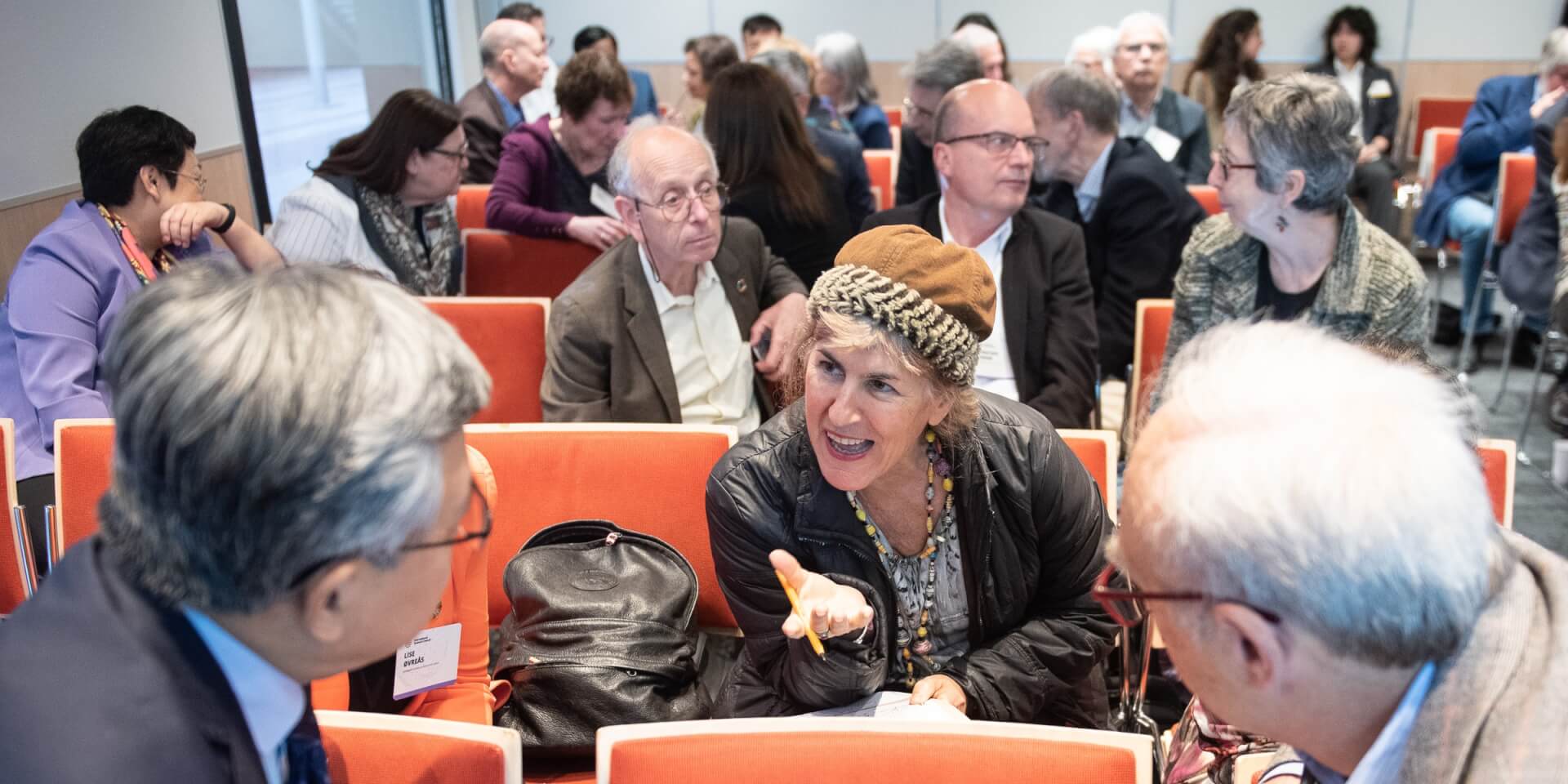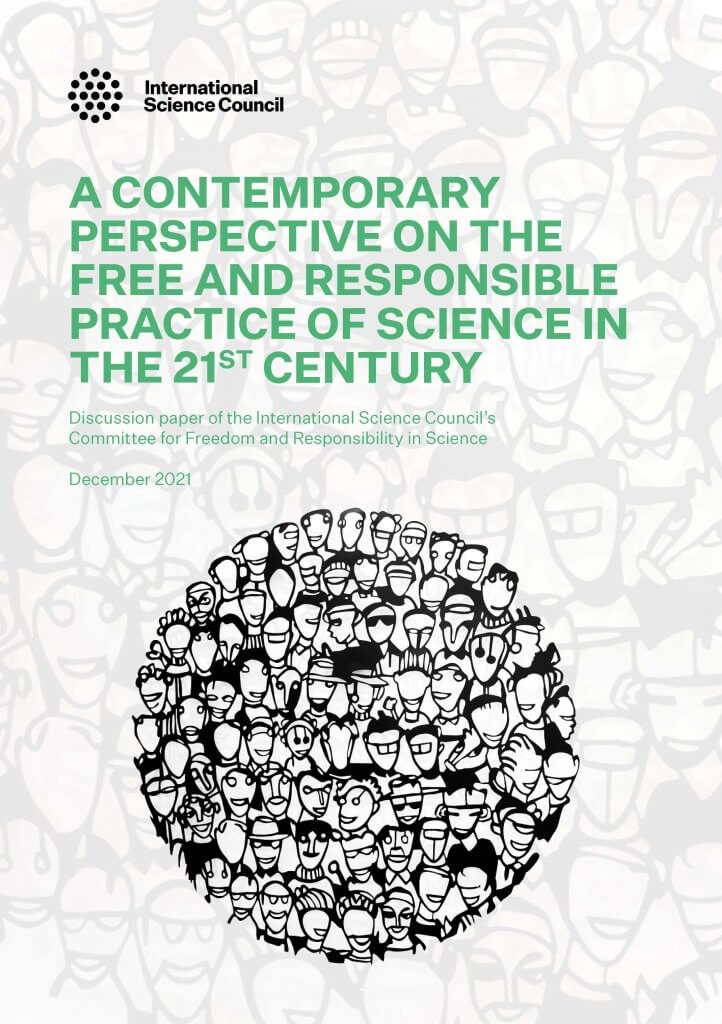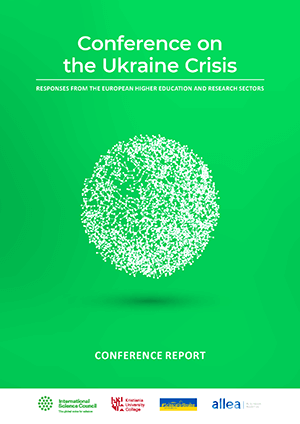
The Paris gathering served as a platform for ISC Members to delve into pressing matters that have a profound impact on science globally. Participants shared valuable insights into the challenges faced by researchers around the world and gained a deeper understanding of the crucial role played by the ISC Committee for Freedom and Responsibility in Science (CFRS) in tackling these issues.

Freedom and Responsibility in science in the 21st century
On 1 May 2023, the International Science Council launched a series of six episodes on the theme of Freedom and Responsibility in Science, in partnership with Nature.
Tackling Emerging Global Threats to Scientists
“Legal harassment and abuse on social media are becoming more common”, says ISC Senior Science Officer Vivi Stavrou, Executive Secretary of the CFRS. “Scientists are also violently threatened, sometimes forced to flee their country, and even killed because of their work. Recently, those working on public health and climate change issues have become particularly vulnerable to such threats”, she notes.
The Committee is charged with upholding the Principle of Freedom and Responsibility in Science – a core part of the ISC mission. This Principle sets out the freedoms that scientists should enjoy, as well as the responsibilities they carry, as practicing researchers.
The CFRS documents emerging trends, provides advice and disseminates valuable information regarding the threats encountered by scientists. The Committee closely monitors specific cases where individual scientists or the broader scientific community are at risk and intervenes where and when it can provide relief. Intervention may be in the form of public advocacy, such as ISC Statements of Concern, as well as ‘behind the scenes’ with a significant portion of CFRS casework conducted discreetly through advocating for science and connecting with governments, embassies, and science attachés worldwide. Currently, the CFRS is monitoring 31 cases, with a sizeable number of these involving scientists whose work is perceived as a threat by powerful entities.

The Committee’s Science in Times of Crisis work seeks to convene the Council’s members and partners to respond to the multiple crises affecting the scientific community. This involves engagement with the Science in Exile network, which connects NGOs, international organizations and scientists who are displaced or at risk to support those scientists, preserve scientific institutions and strategize rebuilding.
The CFRS also mobilizes a Science Stakeholders’ Crisis Group to respond to emergencies that pose an existential threat to the integrity of science systems and cultures, like the Taliban takeover of Afghanistan in 2021 and Russia’s full-scale invasion of Ukraine in March 2022. The CFRS is additionally currently involved in work in Nicaragua and Ethiopia.

Conference on the Ukraine Crisis: Responses from the European Higher Education and Research Sectors
On 15 June 2022 the ISC and partners the All European Academies (ALLEA), Kristiania University College, and Science for Ukraine co-hosted the ‘Conference on the Ukraine Crisis: Responses from the European Higher Education and Research Sectors’.
Addressing Restrictions on Freedom of Movement
During the interactive session, ISC Members discussed other significant threats to global science, including restrictions on freedom of movement – one of the four fundamental scientific freedoms the ISC works to uphold.
Visa policies that prevent scientists from collaborating across borders must be changed, insists Ahmet Nuri Yurdusev, Acting President of the Association of Academies and Societies of Sciences in Asia. This long-standing problem affects scientists around the world, with some panels in international conferences featuring nothing but empty chairs, as many scientists experienced difficulties obtaining their visas on time.
“Marco Polo travelled from Venice to China without being subject to any visa, passport or customs controls,” says Yurdusev. Recognizing the potential hindrance of visa policies on scientific progress, he and other Members urged governments to prioritize freedom of movement for scientists engaged in research.
Even after successfully entering a country, scientists from certain nations are often unjustly prevented from conducting crucial research due to restrictions imposed solely based on their passport, highlights Frances Separovic, Foreign Secretary of the Australian Academy of Science, who raised the issue at the meeting in Paris.
“If you want to do good science, you need the best people from all over the world, no matter where they come from, and you need to be able to exchange information freely,” she says.
She noted the example of PhD researchers from some countries who are forbidden accessing and utilizing certain types of lab equipment during their research activities in foreign countries. Restrictions often justified by broad security concerns that are unrelated to their specific field of study. Such limitations not only hinder the progress of individual researchers but also impede the advancement of scientific knowledge across borders.
“It’s a loss for global science as a whole, and also for the host countries” she says. “They’re losing access to these bright young people who are willing to take the risk of studying overseas.”
Building Stronger Connections with Local Communities
Other participants raised the issue of scientists’ responsibility towards the communities in which they work, emphasizing the need to cultivate stronger relationships that value local perspectives.
The research community should strive for better local collaboration, knowledge transfer, and knowledge exchange, argues Karly Kehoe, Canada Research Chair in Atlantic Canada Communities, and a member of the CFRS. Many researchers excel at this – but some may overlook the fact that researchers don’t always have all the answers, she explains.
She emphasized the importance of forming long-term partnerships between researchers and communities, which could involve going back, presenting research and seeking input about how people feel about the work, and how they can participate in the next steps. That could take the form of an exhibition or museum, public talks or working with students at a local school, for example – turning the research into a “shared enterprise”.
Engagement with local communities is also a key tool to combat the crisis of public trust faced by scientists around the world. “To move things in a positive direction, where we get trust in science, where we get people prepared to engage in conversations with the research community, [we need to] value the knowledge they have locally, whether it’s other scientists or local community groups,” Kehoe adds.
Vivi Stavrou concluded the session by highlighting CFRS’s commitment to expanding upon the recommendations in their discussion paper, “A contemporary perspective on the free and responsible practice of science in the 21st century.” This expansion will focus on developing globally informed guidance for responsible conduct in contemporary science. ISC members have specifically requested concrete deliverables, such as exemplars of ‘model’ Codes of Conduct, which CFRS will prioritize alongside their ongoing casework and projects.
Image by Jason Gardner.